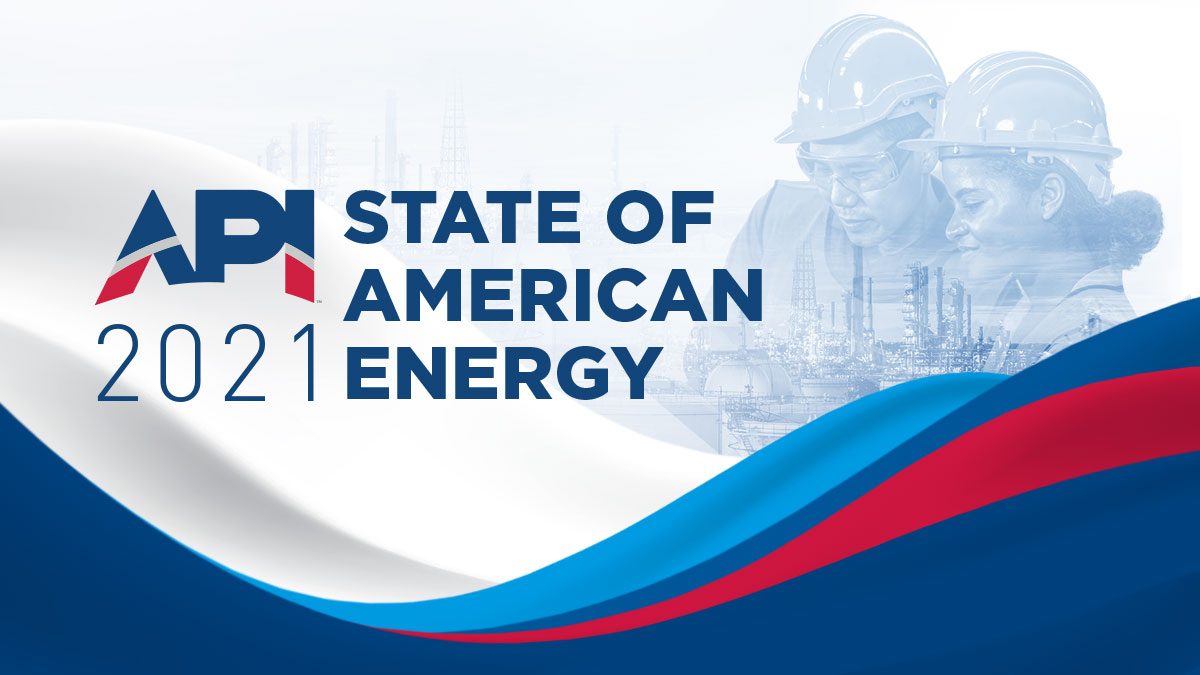| | | | | | | Presented By the American Petroleum Institute | | | | Generate | | By Ben Geman ·Jan 07, 2021 | | Good morning. And a sobering one after a scary, disgraceful day. You can find vital coverage of the events at the Capitol and their aftermath on the Axios website. Today's Smart Brevity count: 1,181 words, 4.5 minutes. 🎸And this weekend marks the 1989 release date of the late Lou Reed's album "New York," which provides today's intro tune... | | | | | | 1 big thing: Signs of the new energy landscape in D.C. and beyond |  Data: FactSet; Chart: Axios Visuals There's a certain symmetry to a pair of energy sector developments yesterday: Solar stocks jumped on a day that also brought hard evidence the oil industry has little interest in trying to drill in Alaska's Arctic National Wildlife Refuge. The big picture: Solar and oil aren't really direct competitors, but both will be affected by the incoming Biden administration's policies and the speed of the global transition toward lower-carbon sources. Driving the news: Yes, stocks move around for lots of reasons. But Democratic wins in Georgia's Senate races — giving Democrats control of both ends of Pennsylvania Ave. — probably propelled solar shares. - The party will have new chances to push climate and clean energy measures, even though the razor-thin congressional margins will impose constraints.
- The chart above shows the performance of solar companies in multiple market segments, and more broadly, per MarketWatch, "clean-energy exchange-traded funds roared higher Wednesday."
- "Investors are betting that Democrats will prioritize clean-energy policies, as well as stimulus spending to help make those policies real," they note.
The intrigue: The Interior Department yesterday unsealed bids for leases in the Arctic refuge, revealing very low industry interest. - The lease sale drew just $14.4 million in high bids as major oil companies steered clear and there were just three total bidders (and few listed without names as "incomplete").
- The state-owned Alaska Industrial Development and Export Authority, which isn't an oil company, accounted for almost all the high bids, with two small oil companies also snagging tracts.
Why it matters: The paltry bidding is a sign of the times. Oil companies face strained budgets amid the pandemic and cloudy future demand and prices. - There's also intense pressure from environmentalists to keep clear, and ongoing and future litigation over federal leasing and permitting.
- Meanwhile, big banks are increasingly putting new restrictions on Arctic oil finance.
- And Joe Biden has vowed to try to thwart efforts to develop the region, which was opened under a GOP-crafted 2017 law.
Yes, but: Backers of drilling in the refuge said they're still hopeful about oil development happening eventually. Tapping what could be huge deposits there has always been a long-term prospect, with potential commercial production perhaps a decade away. - Via Bloomberg..."'It is my hope that if and when commercial quantities of oil are discovered on any of these leases, that this action will make history for generations to come,' yielding well-paying jobs, royalty payments and new sources of crude, said Deputy Interior Secretary Kate MacGregor."
Go deeper: Arctic Refuge lease sale goes bust, as major oil companies skip out (Alaska Public Media) |     | | | | | | 2. The U.S. auto efficiency stall |  Data: EPA; Chart: Axios Visuals The average fuel efficiency of cars and light trucks sold in the U.S. dipped in model year 2019, newly released federal data shows. Why it matters: Transportation is the nation's largest source of greenhouse gas emissions. The overall trends (see above) show that the sector is far from steep emissions cuts. How it works: Per Reuters, "The shift to larger vehicles was the biggest factor hurting fuel economy. In 2019, 44% of the fleet were cars and 56% were light-duty trucks, a category that includes SUVs, the highest percentage of trucks on record." What they're saying: EPA Administrator Andrew Wheeler said the data justifies his agency's decision to weaken Obama-era rules on mileage and CO2 emissions to allow smaller increases through the mid-2020s. "This report shows in detail how few auto manufactures were able to meet the unrealistic emissions standards set by the Obama Administration without resorting to purchasing emission credits," he said. The other side: Dan Becker, an advocate for much tougher emissions standards, said the data show why the incoming administration must reverse Trump policy. "Without tough rules from the Biden administration, automakers will keep pushing gas-guzzling Trumpmobiles on consumers rather than deliver clean cars that cut pollution," said Becker, who's with the Center for Biological Diversity. |     | | | | | | 3. Known unknowns about Biden's natural gas diplomacy |  | | | Illustration: Sarah Grillo/Axios | | | | Part of a new post by energy analyst Nikos Tsafos raises an important point: Joe Biden's approach to U.S. financing of natural gas projects abroad and LNG exports is something of a mystery, even as he plans new domestic regulations. The big picture: Tsafos notes there's been significant support in recent years from a pair of U.S. agencies — the Export-Import Bank and the International Development Finance Corp. "[T]he prospect of securing finance from the DFC has been a selling point for U.S. diplomacy, especially in Southeast Asia and Eastern Europe," writes Tsafos, who's with the Center for Strategic and International Studies. What we're watching: Tsafos says the question for the new administration is whether it will keep up support for overseas gas projects even as it plans new rules and restrictions domestically. - "Can the president squeeze gas at home while EXIM and the DFC finance gas projects overseas?"
- "And if there is a shift away from gas, how will that be communicated, especially in places where countries see gas as a central element of their near-term decarbonization or energy security strategies?"
The intrigue: On a related note, it remains to be seen how Biden will approach U.S. LNG exports, which both the Obama and Trump administration supported. - Tsafos expects less weight given to gas exports as a diplomatic tool and a less rah-rah approach than Trump in general, but not a 180-degree policy turn.
- "Gas will take a more appropriate place in the pecking order of U.S. priorities—important but not top-tier."
Flashback: Axios' Amy Harder also looked at this question here. |     | | | | | | A message from the American Petroleum Institute | | COMING SOON: State of American Energy 2021 | | |  | | | | The American Petroleum Institute will release its annual State of American Energy report, "Building The Future," Jan. 13, outlining the consequential role natural gas and oil will play in America's future, for decades to come. Visit API.org for updates. | | | | | | 4. "Shifting baselines" show the march of climate change |  | | | Illustration: Sarah Grillo/Axios | | | | Axios' Bryan Walsh reports...Scientists this year will update how they calculate average temperatures, altering our reference point of a "normal climate." Why it matters: What we think of as normal in life — whether in climate, politics or society — is always changing due to what's known as the "shifting baselines syndrome." Because we often miss those changes, we end up with a warped image of the present that shapes our policies and our future. What's happening: This spring the National Oceanic and Atmospheric Administration will update its calculation of average temperatures and precipitation. - "Normal" high and low temperatures and precipitation — the figures you might see on a daily weather report — are drawn from weather data over a 30-year period, a practice that has been maintained for over a century.
- Every decade forecasters shift to a newer 30-year data set. Over the past decade that meant 1981–2010, but beginning this year averages will be calculated from 1991–2020.
Because 1991–2020 was warmer than 1981–2010 in nearly every part of the U.S., the update means what we classify as normal temperatures now will actually be higher than just a year ago, because the baseline for what's considered normal has shifted. Background: The term "shifting baselines" was coined in 1995 by fisheries scientist Daniel Pauly in what became a landmark paper. - Pauly was writing about the efforts of fisheries science to determine what was a sustainable catch level for commercial fish.
- The problem, as Pauly wrote, was that "each generation of fisheries scientists accepts as a baseline the stock size and species composition that occurred at the beginning of their careers, and uses this to evaluate changes."
Read the whole story |     | | | | | | 5. Number of the day: 54% | | That's electric vehicles' share of new car sales in Norway last year, per new data from a Norwegian transportation group covered by Reuters and CNN. Why it matters: The rise above 50% is an inflection point as the country aims to end sales of new fossil fuel-powered cars by the mid-2020s. CNN notes Norway is "using huge tax incentives" to spur the change. |     | | | | | | A message from the American Petroleum Institute | | COMING SOON: State of American Energy 2021 | | |  | | | | The American Petroleum Institute will release its annual State of American Energy report, "Building The Future," Jan. 13, outlining the consequential role natural gas and oil will play in America's future, for decades to come. Visit API.org for updates. | | | | | | Axios thanks our partners for supporting our newsletters.
Sponsorship has no influence on editorial content. Axios, 3100 Clarendon Blvd, Suite 1300, Arlington VA 22201 | | | You received this email because you signed up for newsletters from Axios.
Change your preferences or unsubscribe here. | | | Was this email forwarded to you?
Sign up now to get Axios in your inbox. | | | | Follow Axios on social media:    | | | | | |








No comments:
Post a Comment